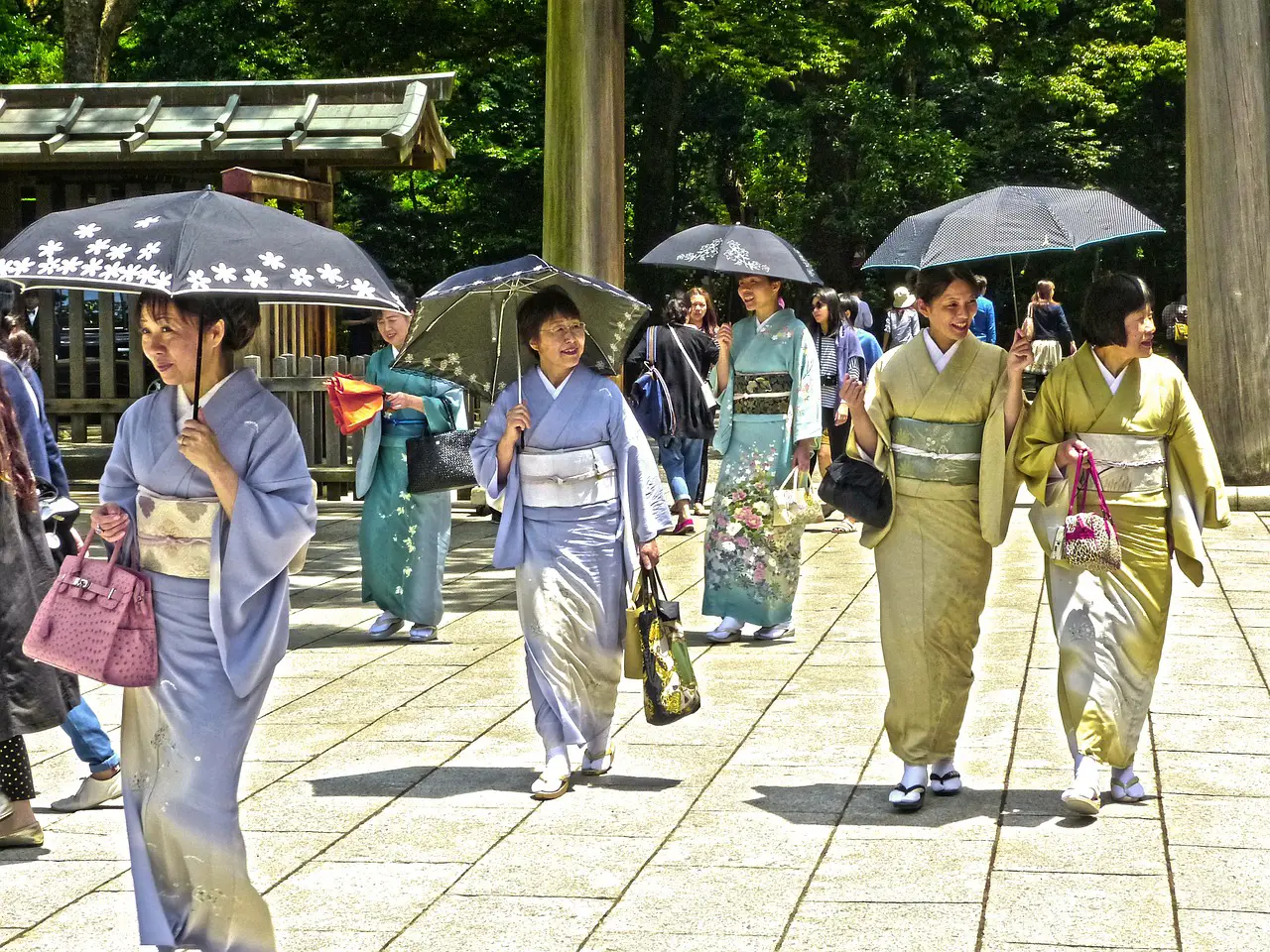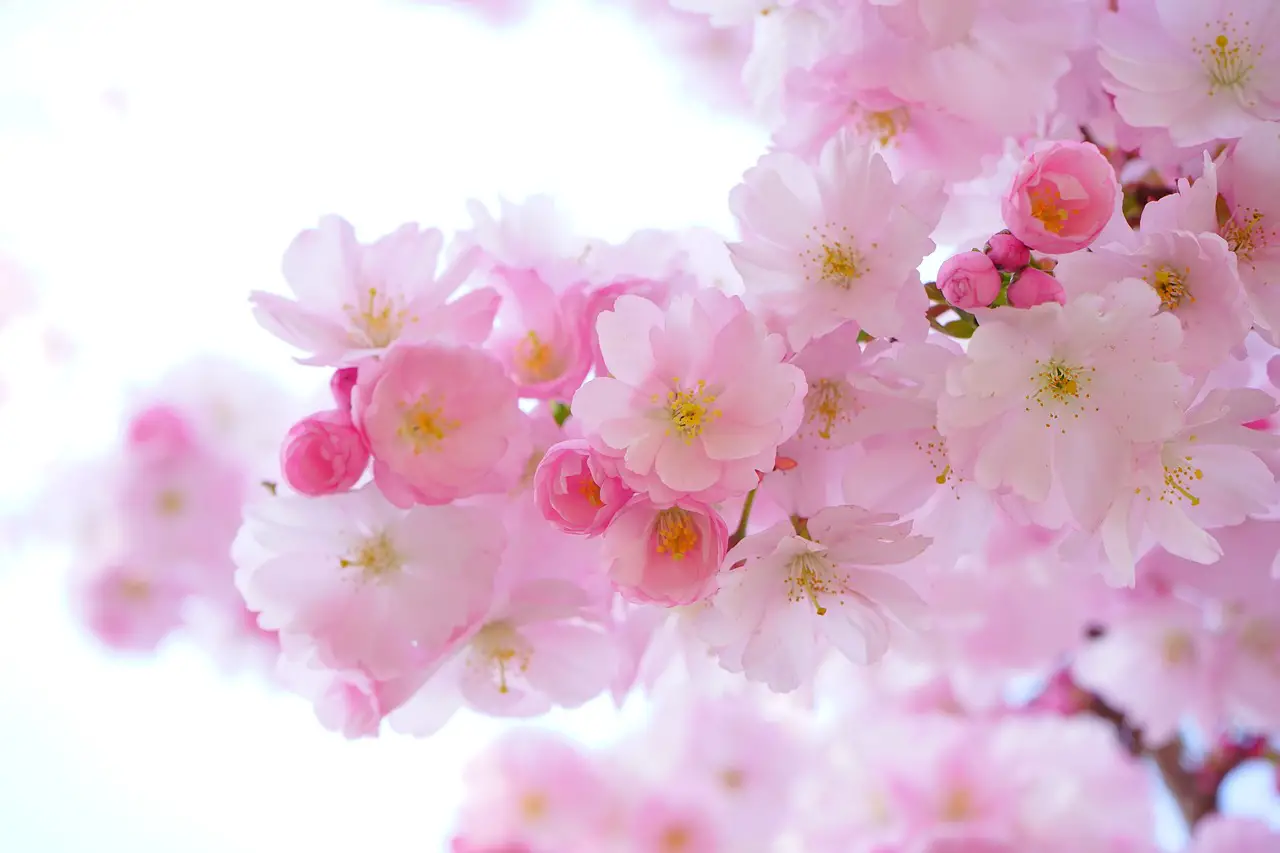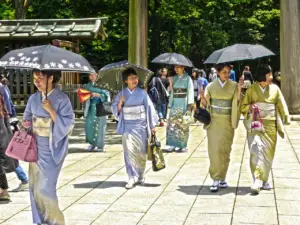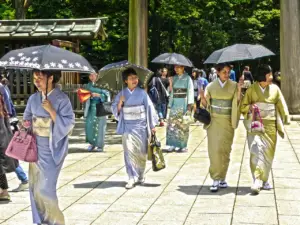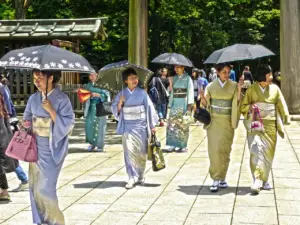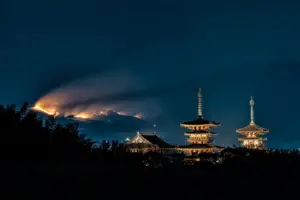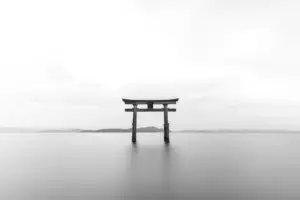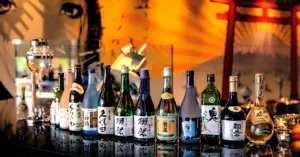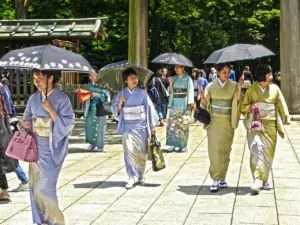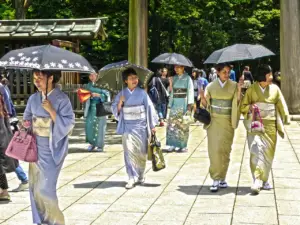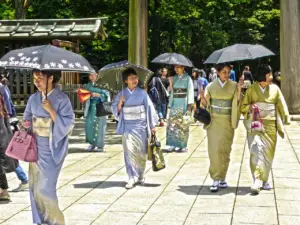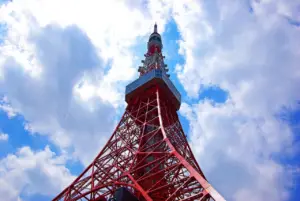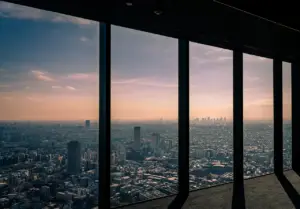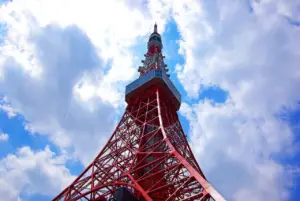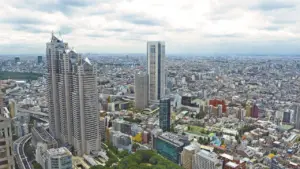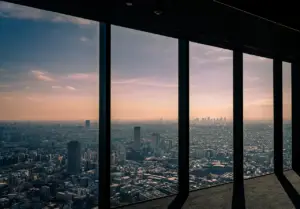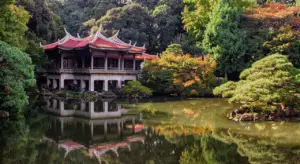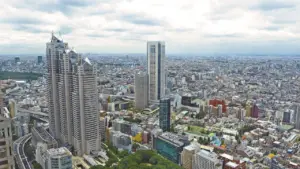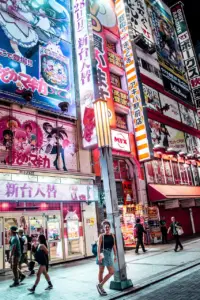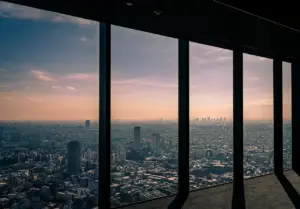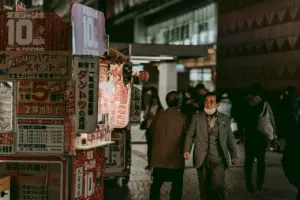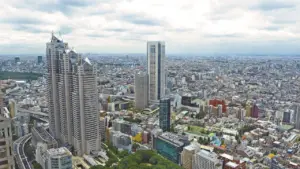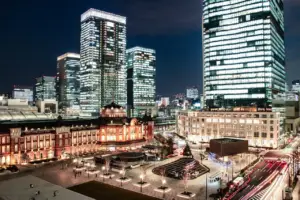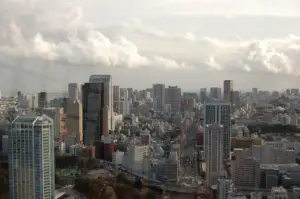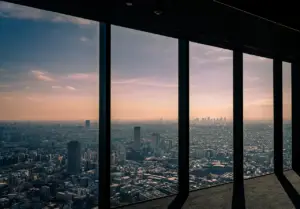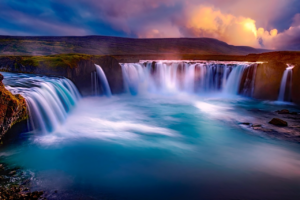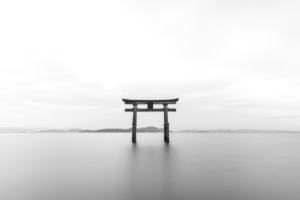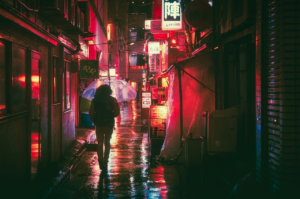Japan’s film industry has a rich history dating back over a century, with the country producing some of the world’s most iconic and celebrated films. Japanese cinema has influenced and inspired filmmakers worldwide, with directors such as Akira Kurosawa, Yasujiro Ozu, and Hayao Miyazaki becoming household names.
Japan’s film festivals play a crucial role in celebrating and promoting the country’s cinematic excellence, providing a platform for both emerging and established filmmakers to showcase their work.
From the internationally renowned Tokyo International Film Festival to smaller, more niche events such as the Yamagata International Documentary Film Festival, Japan’s film festivals offer a diverse range of experiences for cinephiles. These festivals not only showcase the latest works by Japanese filmmakers but also provide opportunities to discover new and exciting voices from across Asia and beyond.
With this guide, we will take a closer look at some of Japan’s most significant film festivals, providing insights into their histories, programming, and tips for attending. Whether you are a seasoned film festival-goer or a curious newcomer, this guide aims to provide a comprehensive overview of Japan’s film festival landscape, celebrating the country’s cinematic heritage and its ever-evolving future.
Key Takeaways
- Japan has a rich history in film dating back over a century and has influenced filmmakers worldwide.
- Film festivals in Japan play a crucial role in celebrating and promoting the country’s cinematic excellence, with a diverse range of experiences for cinephiles, including workshops, masterclasses, and roundtable discussions.
- The Yamagata International Documentary Film Festival is a significant event in the global film festival circuit, promoting excellence in documentary filmmaking and creating a space for cultural exchange between filmmakers, curators, scholars, and audiences from different parts of the world.
- Attending Japanese film festivals can be a rewarding cultural experience for international film enthusiasts, but it is important to be prepared for the unique customs and expectations associated with these events, such as removing shoes before entering screening rooms and remaining silent during screenings.
Overview of Japanese Cinema History
A chronological account of the development of Japanese cinema can be traced back to the early 1900s, with the production of short films and the establishment of small studios, which eventually led to the emergence of a distinctive cinematic style during the mid-20th century.
In the early stages, Japanese filmmakers were heavily influenced by Western cinema, creating films that mirrored Western modes of storytelling and aesthetics. However, as the industry grew and matured, Japanese filmmakers began to develop their own unique style, drawing from their cultural and historical roots to create works that were distinctly Japanese.
During the 1950s and 1960s, a number of filmmakers emerged who would come to define Japanese cinema’s Golden Age. Directors such as Akira Kurosawa, Yasujiro Ozu, and Kenji Mizoguchi created films that explored the complexities of Japanese society and culture, often using traditional Japanese aesthetics to tell their stories.
This period is widely regarded as one of the most significant in Japanese cinema history, with many of the films produced during this time still revered as classics of world cinema today.
Tokyo International Film Festival
The Tokyo International Film Festival (TIFF) is an annual event that first took place in 1985.
It is one of the largest film festivals in Asia and attracts filmmakers, industry professionals, and movie enthusiasts from around the world.
The festival showcases a diverse selection of films from different genres and countries, and also features special events and guests, including master classes, Q&A sessions, and award ceremonies.
History and Overview
Japan’s film festival landscape boasts a rich history and diverse range of events that showcase both local and international cinematic excellence. The country’s first film festival, the Tokyo International Film Festival, was established in 1985 and has since become one of the most prestigious film festivals in Asia. Over the years, Japan has also seen the emergence of several other film festivals that cater to different genres, themes, and audiences.
One of the most notable film festivals in Japan is the Osaka Asian Film Festival, which was launched in 2005 and focuses on showcasing the best of Asian cinema. Another popular event is the Yamagata International Documentary Film Festival, which has been held biennially since 1989 and is dedicated to promoting documentary filmmaking. These festivals, along with many others, provide a platform for filmmakers to showcase their work, engage with audiences, and connect with industry professionals. Through these events, Japan’s film festival landscape continues to evolve and thrive, contributing to the growth and development of the country’s film industry.
| Film Festival | Year Established | Focus |
|---|---|---|
| Tokyo International Film Festival | 1985 | International cinema |
| Osaka Asian Film Festival | 2005 | Asian cinema |
| Yamagata International Documentary Film Festival | 1989 | Documentary filmmaking |
Film Selection and Screening Venues
Film selection and screening venues play a crucial role in the success of any film festival, as they determine the films that will be shown and the experience of the audience. In Japan, film festivals have a wide range of film selection criteria that cater to different audiences. The selection process is usually rigorous and competitive, with a panel of experts carefully reviewing and selecting films that meet their standards.
Film festivals in Japan also have a diverse range of screening venues, from traditional theaters to open-air venues, and even on boats. These venues are carefully chosen to provide a unique and memorable experience for the audience.
One of the most popular screening venues in Japan’s film festivals is the open-air venue. Watching a movie under the stars can be a magical experience, and many film festivals in Japan take advantage of this by screening films in parks, temples, and other outdoor locations.
Another popular venue is the traditional theater. These theaters usually have a rich history and charm that adds to the overall atmosphere of the film festival. Some film festivals even have screenings on boats, which is a unique experience that immerses the audience in the film and the surrounding scenery.
With a diverse range of screening venues, Japan’s film festivals offer a one-of-a-kind experience for film enthusiasts.
Special Events and Guests
Special events and guests are an integral part of the film festival experience, as they provide opportunities for networking, learning, and celebrating the art of cinema. Many film festivals feature special events such as workshops, masterclasses, and roundtable discussions with industry professionals. These events give attendees the chance to learn from experts, gain insights into the filmmaking process, and expand their knowledge of the film industry. Additionally, screenings of classic films, retrospectives, and special presentations by filmmakers or actors provide opportunities to appreciate the history and evolution of cinema.
Guests, including filmmakers, actors, and industry insiders, also play a significant role in film festivals. They often attend screenings of their films, participate in Q&A sessions, and interact with attendees. These interactions can create networking opportunities for aspiring filmmakers, as well as offer a unique perspective on the creative process and the film industry. The table below highlights some of the special events and guests that have been featured in Japan’s major film festivals in recent years, providing a glimpse into the diverse range of activities and guests that attendees can expect to encounter.
| Film Festival | Special Events | Featured Guests |
|---|---|---|
| Tokyo International Film Festival | Masterclasses, Q&A sessions, film screenings, symposiums | Martin Scorsese, Alejandro González Iñárritu, Tim Burton |
| Osaka Asian Film Festival | Workshops, lectures, film screenings | Johnnie To, Eric Tsang, Hong Sang-soo |
| Okinawa International Movie Festival | Red carpet events, concerts, film screenings | Jackie Chan, Takashi Miike, Yoji Yamada |
| Yamagata International Documentary Film Festival | Workshops, seminars, film screenings | Werner Herzog, Kim Longinotto, Kazuo Hara |
| Skip City International D-Cinema Festival | Film screenings, seminars, panel discussions | Koji Wakamatsu, Sabu, Shinya Tsukamoto |
Osaka Asian Film Festival
The Osaka Asian Film Festival is an annual event that celebrates and showcases Asian cinema. Established in 2005, this festival has grown to become one of the most important film festivals in Asia.
The festival’s focus on Asian cinema provides a platform for talented filmmakers to showcase their works to a wider audience, while its awards and prizes recognize the best in Asian cinema.
History and Overview
With a history dating back to the early 1950s, Japan’s film festival culture has evolved into a diverse and vibrant landscape that showcases both domestic and international cinematic excellence. The country’s love affair with cinema is reflected in the proliferation of film festivals that cater to a wide range of tastes and interests. From mainstream events that attract large audiences to niche festivals that celebrate specific genres or themes, Japan’s film festival calendar is packed with options for movie enthusiasts.
To get a better understanding of Japan’s film festival culture, here is a brief overview of some of the country’s most prominent festivals:
-
Tokyo International Film Festival – The largest and most prestigious film festival in Japan, the Tokyo International Film Festival attracts thousands of visitors every year. The festival showcases a wide range of films from around the world, with a focus on promoting Japanese cinema.
-
Osaka Asian Film Festival – Focusing on Asian cinema, the Osaka Asian Film Festival is one of the most popular film festivals in Japan. With a range of film categories including competition, special screenings, and retrospective programs, the festival has something for everyone.
-
Yubari International Fantastic Film Festival – One of the most unique film festivals in Japan, the Yubari International Fantastic Film Festival celebrates horror, science fiction, and fantasy films. Located in a remote town in Hokkaido, the festival attracts die-hard fans of genre cinema from around the world.
-
Sapporo International Short Film Festival – As the name suggests, this festival focuses on short films from around the world. With a range of categories including animation, documentary, and experimental films, the festival is a great platform for emerging filmmakers to showcase their work.
Focus on Asian Cinema
Focusing on the richness and diversity of Asian cinema, Japan’s film festival landscape boasts a number of events that showcase the best of the region’s cinematic offerings.
The Tokyo International Film Festival (TIFF) is one such event that celebrates Asian cinema, with a particular focus on Japanese films. Established in 1985, TIFF has become one of the most prominent film festivals in Asia, attracting filmmakers and cinephiles from all over the world.
The festival’s Asian Future section is dedicated to showcasing new and emerging talents in Asian cinema, providing a platform for independent filmmakers to showcase their works. Additionally, TIFF’s Japanese Cinema Splash section focuses on contemporary Japanese films that have not yet been released in theaters, offering audiences a sneak peek into the latest offerings from the country’s vibrant film industry.
Apart from TIFF, other film festivals in Japan that celebrate Asian cinema include the Osaka Asian Film Festival and the Okinawa International Movie Festival.
The former, which was established in 2005, showcases films from across Asia, with a particular focus on independent and low-budget productions. The festival’s competition section, the New Talent Award, recognizes up-and-coming filmmakers from the region.
Meanwhile, the Okinawa International Movie Festival, which started in 2009, celebrates not only Asian cinema but also popular culture, with a special focus on music and comedy. The festival’s Asia Showcase section is dedicated to showcasing the latest cinematic offerings from across the region, offering audiences a chance to see the best of Asian cinema on the big screen.
Awards and Prizes
After discussing the significance of Asian cinema in Japan’s film festivals, it is important to delve into the awards and prizes that recognize cinematic excellence. Film festivals in Japan offer a wide range of awards and prizes that recognize the achievements of filmmakers and their creative teams.
These awards serve as a platform for filmmakers to showcase their work and gain recognition in the industry. One of the most prestigious awards in Japan’s film festivals is the Grand Prix, which is awarded to the best film in competition. Other awards include the Best Director, Best Screenplay, Best Actor, Best Actress, and Best Supporting Actor or Actress.
Additionally, there are awards that recognize technical achievements such as Best Cinematography, Best Editing, and Best Sound. These awards not only celebrate the creativity and technical skills of the filmmakers, but they also offer an opportunity for the international film community to discover new talent in Japan’s cinema industry.
Nippon Connection Film Festival (Frankfurt, Germany)
The Nippon Connection Film Festival is an annual event held in Frankfurt, Germany that showcases the best of Japanese cinema. Founded in 2000, the festival has since become the largest festival for Japanese film worldwide.
Along with screenings of feature films, documentaries, and shorts, the festival also offers various special events and workshops that provide attendees with a deeper understanding of Japanese culture and cinema.
History and Overview
Japan’s film festival culture has a rich history that dates back to the early 20th century, and has since evolved to include a diverse range of festivals that celebrate cinematic excellence.
The history of film festivals in Japan can be traced back to the 1920s, when the first-ever Japanese film festival was held in Tokyo. Since then, the country has hosted a number of film festivals, both big and small, that have become a key part of Japan’s cultural landscape.
Today, Japan’s film festival scene is among the most diverse and vibrant in the world. From the Tokyo International Film Festival, which is one of the largest and most prestigious film festivals in Asia, to the Osaka Asian Film Festival, which focuses on showcasing new and emerging talent from across the region, there is something for everyone.
The country also hosts a number of specialized festivals that cater to specific genres, such as the Yubari International Fantastic Film Festival, which is dedicated to horror and science fiction films.
Overall, Japan’s film festival culture is a testament to the country’s love of cinema and its commitment to celebrating the artistry and creativity of filmmakers from around the world.
Focus on Japanese Cinema
Focusing on Japanese cinema allows for a deeper understanding of the country’s unique cultural perspectives and storytelling techniques in film. Japanese filmmakers are known for their attention to detail, visual imagery, and poetic storytelling. Their films often explore themes of social alienation, cultural identity, and the human condition in a nuanced and introspective way.
To truly appreciate Japanese cinema, one must understand the cultural context in which it is produced. Here are some factors that contribute to the distinctiveness of Japanese cinema:
-
The influence of traditional Japanese theatre, such as Kabuki and Noh, on film aesthetics
-
The use of visual motifs and symbolism to convey deeper meanings
-
The focus on character development and internal conflict over plot-driven narratives
-
The exploration of societal issues and taboos, such as suicide and mental illness
-
The presence of strong female characters who challenge traditional gender roles and expectations.
By understanding these elements, viewers can fully appreciate the richness and complexity of Japanese cinema and its contribution to the world of film.
Special Events and Workshops
One noteworthy aspect of exploring Japanese cinema is the opportunity to participate in special events and workshops that provide a unique perspective on the art of filmmaking.
Japan’s film festivals offer a myriad of opportunities to engage with filmmakers, actors, and industry professionals through panel discussions, Q&A sessions, and masterclasses.
These events are designed to cater to a diverse audience, from aspiring filmmakers to cinephiles, and provide an immersive experience that goes beyond simply watching films.
In addition to learning about the technical aspects of filmmaking, attendees can also gain insights into the cultural, social, and political contexts that shape Japanese cinema.
For instance, the Tokyo International Film Festival hosts a series of seminars that explore the relationship between Japanese cinema and society, while the Nippon Connection festival offers workshops on Japanese animation and manga.
By participating in these events, attendees can gain a deeper understanding of the nuances of Japanese cinema and the creative processes that go into making films.
Yamagata International Documentary Film Festival
The Yamagata International Documentary Film Festival is a well-established event that showcases the best of non-fiction filmmaking from around the world. Held biennially in Yamagata City, Japan, the festival has become a platform for filmmakers and artists to showcase their work, exchange ideas, and engage with audiences who are passionate about documentary cinema.
The festival offers an array of programs and activities that cater to the diverse interests of its attendees. Here are three things that make the Yamagata International Documentary Film Festival a must-visit event for documentary enthusiasts:
(1) It presents a rich and varied selection of non-fiction films, which range from classic documentaries to experimental works that challenge the boundaries of documentary filmmaking;
(2) It hosts symposiums, workshops, and masterclasses that provide opportunities for filmmakers to learn from industry experts and engage in discussions about the art and craft of documentary filmmaking;
(3) It creates a space for cultural exchange, as it brings together filmmakers, curators, scholars, and audiences from different parts of the world to share their perspectives and experiences about documentary cinema.
With its commitment to promoting excellence in documentary filmmaking, the Yamagata International Documentary Film Festival has established itself as a significant event in the global film festival circuit.
Tips for Attending Japanese Film Festivals
Attending Japanese film festivals can be a rewarding cultural experience for international film enthusiasts seeking to expand their knowledge and appreciation of global cinema. However, it is important to be prepared for the unique customs and expectations that are associated with these events.
For example, it is customary for attendees to remove their shoes before entering screening rooms, so it is advisable to wear comfortable socks or bring slippers. Additionally, it is common for audiences to remain silent during screenings, even during comedic or dramatic moments, so as not to disturb the experience for others.
Another important consideration is the language barrier. While many Japanese film festivals offer English subtitles, it is important to check beforehand to ensure that this is the case for the screenings you plan to attend. It is also helpful to bring a good understanding of Japanese customs and etiquette, as this will allow you to better appreciate the films and interact respectfully with locals.
Overall, attending Japanese film festivals offers a unique opportunity to immerse oneself in a rich and complex cultural experience, but it is important to be prepared and respectful of local customs and expectations.
Frequently Asked Questions
What is the process for submitting a film to Japanese film festivals?
Submitting a film to Japanese film festivals typically involves filling out an application form, paying a submission fee, and providing a copy of the film either through online upload or physical delivery.
The application form usually requires information about the film such as the title, director, producer, and synopsis, as well as technical details such as the running time, format, and language.
Some festivals may also require additional materials such as stills, trailers, or press kits.
It is important to carefully read the submission guidelines and requirements of each festival to ensure that the film meets the eligibility criteria and technical specifications.
Additionally, it is recommended to submit the film as early as possible to avoid missing the deadline and to increase the chances of being selected.
Are there any specific restrictions or guidelines for the types of films that can be shown at Japanese film festivals?
Japanese film festivals have varying restrictions and guidelines regarding the types of films that can be shown. Some festivals may have a specific focus on a particular genre, such as horror or animation, while others may be open to all types of films.
Additionally, some festivals may have restrictions on the length or format of films that can be submitted. For example, some festivals may only accept short films or films that have not been previously screened in Japan.
It is important for filmmakers to carefully review the guidelines for each festival and ensure that their film meets the requirements before submitting. Ultimately, the goal of these restrictions and guidelines is to ensure that the films shown at the festival align with the festival’s mission and audience.
How do Japanese film festivals differ from those in other countries?
Comparing Japanese film festivals to those in other countries highlights several differences.
One of the most notable is the emphasis on traditional Japanese culture and aesthetics within Japanese festivals. Many Japanese festivals incorporate elements of traditional Japanese arts such as tea ceremonies, calligraphy, and kabuki performances as a way to celebrate the country’s cultural heritage.
Additionally, Japanese festivals tend to focus on promoting emerging talent and independent filmmaking, rather than primarily showcasing commercial blockbusters. This emphasis on promoting new voices and unique visions can create a more diverse and eclectic festival experience.
Finally, Japanese film festivals often prioritize audience engagement and interaction, with Q&A sessions and other opportunities for attendees to interact with filmmakers and industry professionals.
Overall, while there are similarities across film festivals worldwide, the unique cultural and artistic traditions of Japan help set its festivals apart.
Are there any notable Japanese actors or directors that frequently participate in these festivals?
Several notable Japanese actors and directors frequently participate in the country’s film festivals. Among them is Hirokazu Kore-eda, who has won numerous awards both domestically and internationally for his films.
Other notable directors include Naomi Kawase, who has won the Grand Prix at Cannes, and Kiyoshi Kurosawa, who is known for his horror and thriller films.
In terms of actors, Koji Yakusho is a frequent participant in festivals, having appeared in several award-winning films. Issei Ogata is also a notable figure, having won the Best Actor award at the Cannes Film Festival in 2016.
These directors and actors have made significant contributions to Japanese cinema and continue to showcase the country’s talent in the global film industry.
How do Japanese film festivals contribute to the country’s film industry and cultural identity?
Japanese film festivals play a significant role in contributing to the country’s film industry and cultural identity. These festivals provide a platform for Japanese filmmakers to showcase their works and gain recognition for their talent.
Moreover, they act as a stepping stone for emerging filmmakers to break into the industry. Festivals like the Tokyo International Film Festival and the Osaka Asian Film Festival attract international attention, which opens up opportunities for Japanese cinema to reach a global audience.
Additionally, these festivals help preserve Japanese culture by featuring films that reflect the country’s unique traditions and values.
Overall, Japanese film festivals serve as a vital component in promoting the growth of the country’s film industry and cultural heritage.
Conclusion
In conclusion, Japan’s film festivals offer a diverse and eclectic selection of cinematic excellence.
From the prestigious Tokyo International Film Festival to the more niche Yamagata International Documentary Film Festival, these events celebrate the art of filmmaking in all its forms.
Through the lens of Japanese cinema history, attendees can gain a deeper appreciation for the cultural and social context of the films being screened.
Attending these festivals can be a rewarding and enriching experience, but it’s important to plan ahead and be prepared for the unique challenges that come with navigating a foreign film festival.
With careful research and a willingness to embrace new experiences, film enthusiasts can discover a world of cinematic treasures at Japan’s film festivals.



